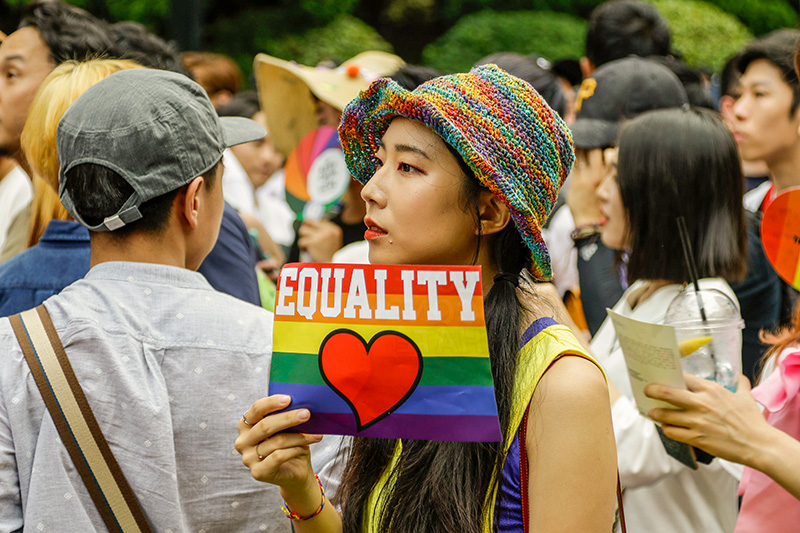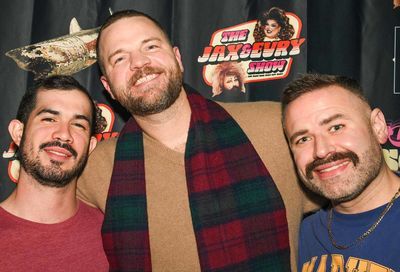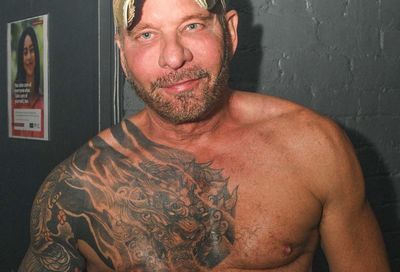Virginia Supreme Court rules cohabitation law applies to gay couples
Court finds in favor of Fairfax man who wanted to stop support payments to ex-wife, now living with her female fiancee

The Supreme Court of Virginia has ruled in favor of a Fairfax County man who was seeking to stop paying spousal support after learning his ex-wife was living with and engaged to another woman.
Lawyers from the ACLU of Virginia, representing Michael Luttrell, of Fairfax County, argued that state law regulating spousal support must be applied equally to same-sex relationships now that the state recognizes marriages between same-sex couples. Luttrell and Samantha Cucco were previously married from 1992 to 2007, when Cucco filed for divorce. As part of their divorce settlement, Luttrell was required to pay monthly spousal support to Cucco for eight years, or until either ex-spouse died, Cucco remarried, or action by a court of law upon receiving evidence that Cucco, as the spouse receiving support, had “been habitually cohabitating with another person in a relationship analogous to marriage for one year or more.”
In July 2014, Luttrell asked the Circuit Court of Fairfax County to terminate his spousal support obligation as outlined by the divorce settlement, alleging that Cucco was “engaged to be married” and had been “cohabitating continuously” with her fiancee, another woman, for at least a year. He also asked the court to make Cucco refund one year’s worth of spousal support payments. When confronted, Cucco did not deny Luttrell’s claims, arguing only that she could not be considered to be “cohabitating” because she was living with another woman.
The circuit court agreed with Cucco, ruling that only opposite-sex couples could cohabit under their interpretation of Virginia’s statute governing spousal support payments. Upon appeal, the Court of Appeals upheld the circuit court’s ruling, relying on prior court cases — decided well before Virginia began recognizing same-sex marriages in 2014 — that defined cohabitation in gender-specific terms where only a man and woman can be in a relationship considered “analogous to marriage.”
But the Virginia Supreme Court noted in its ruling that the words “spouse” and “person” as they appear in the statute governing spousal support are gender-neutral and can apply to either sex. The court also found that Cucco’s relationship had the appearance of a “‘remarriage’ within the meaning and intent of the property settlement agreement.”
“[The statute] recognizes that an individual who has entered a committed, financially interdependent relationship with a third person is no longer dependent upon his or her ex-spouse in the same manner as when the agreement was executed,” Justice William C. Mims, a former Virginia attorney general and longtime state senator, wrote in the court’s opinion. “Therefore, it provides a mechanism designed to prevent one former spouse from obtaining a windfall at the expense of the other after the recipient has entered such a relationship.
“A contrary interpretation [of the statute] would obstruct this purpose in the case of a receiving spouse who subsequently cohabits with a same-sex partner, Mims continued. “Indeed, it would produce the following untenable result: two identically-situated individuals with identical spousal support awards would receive opposite treatment if one cohabits in a same-sex relationship and the other cohabits in an opposite-sex relationship. The individual in the same-sex relationship would continue to receive support while the individual in the opposite-sex relationship would not. We cannot conclude that the General Assembly intended such a result. Accordingly, the Court of Appeals erred when it concluded that the General Assembly intended the phrase ‘habitually cohabiting with another person in a relationship analogous to a marriage’ to refer only to opposite-sex relationships.”
Luttrell’s legal team celebrated the victory handed to them by the court.
“The court made the correct ruling in this case, which is to recognize that all laws regarding marriage must be applied equally regardless of the gender of the individuals involved,” Gail Deady, the ACLU of Virginia’s Secular Society Women’s Rights Legal Fellow, said in a statement. “Marriage equality means marriage equality.”
Support Metro Weekly’s Journalism
These are challenging times for news organizations. And yet it’s crucial we stay active and provide vital resources and information to both our local readers and the world. So won’t you please take a moment and consider supporting Metro Weekly with a membership? For as little as $5 a month, you can help ensure Metro Weekly magazine and MetroWeekly.com remain free, viable resources as we provide the best, most diverse, culturally-resonant LGBTQ coverage in both the D.C. region and around the world. Memberships come with exclusive perks and discounts, your own personal digital delivery of each week’s magazine (and an archive), access to our Member's Lounge when it launches this fall, and exclusive members-only items like Metro Weekly Membership Mugs and Tote Bags! Check out all our membership levels here and please join us today!






























You must be logged in to post a comment.